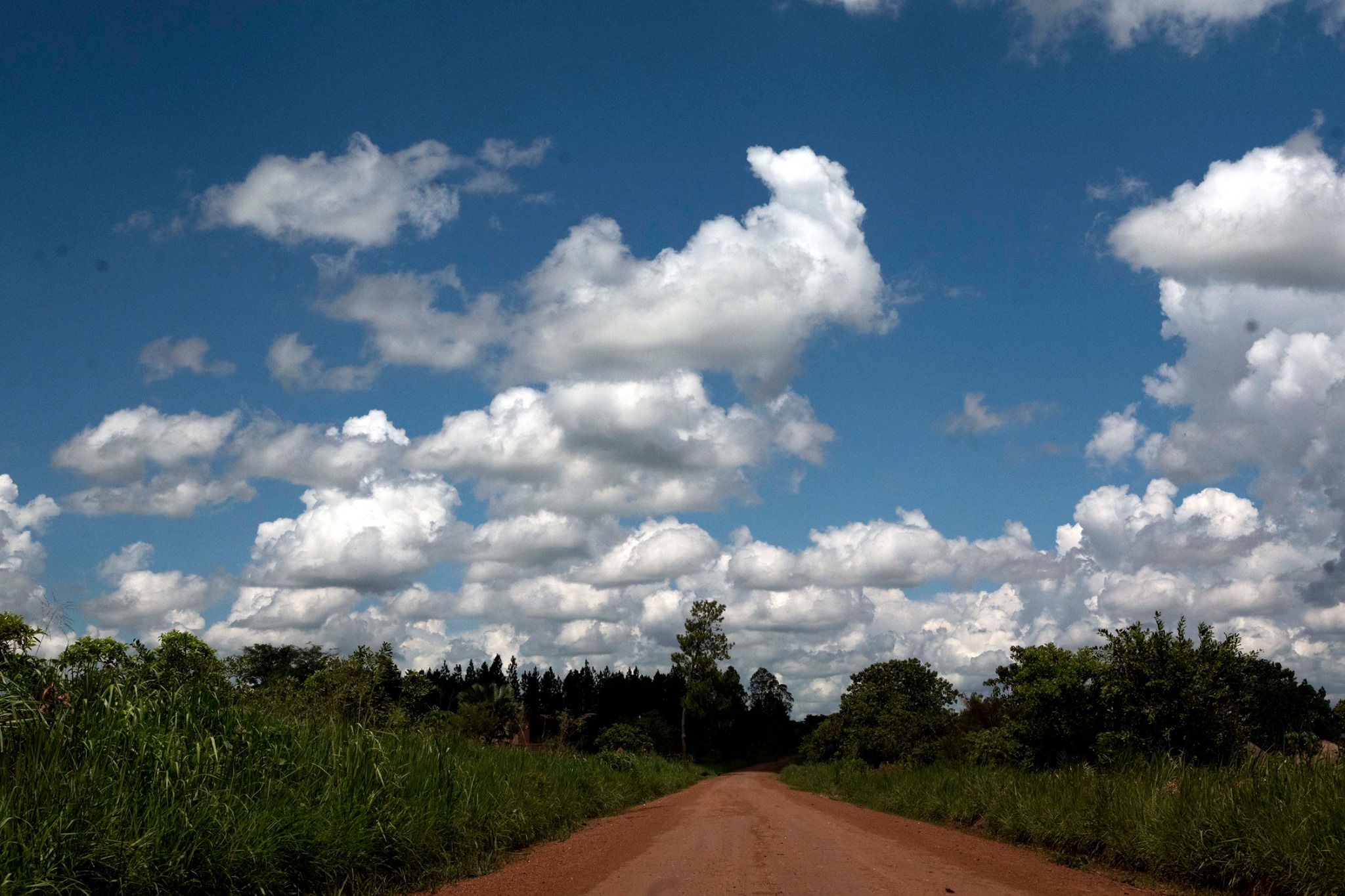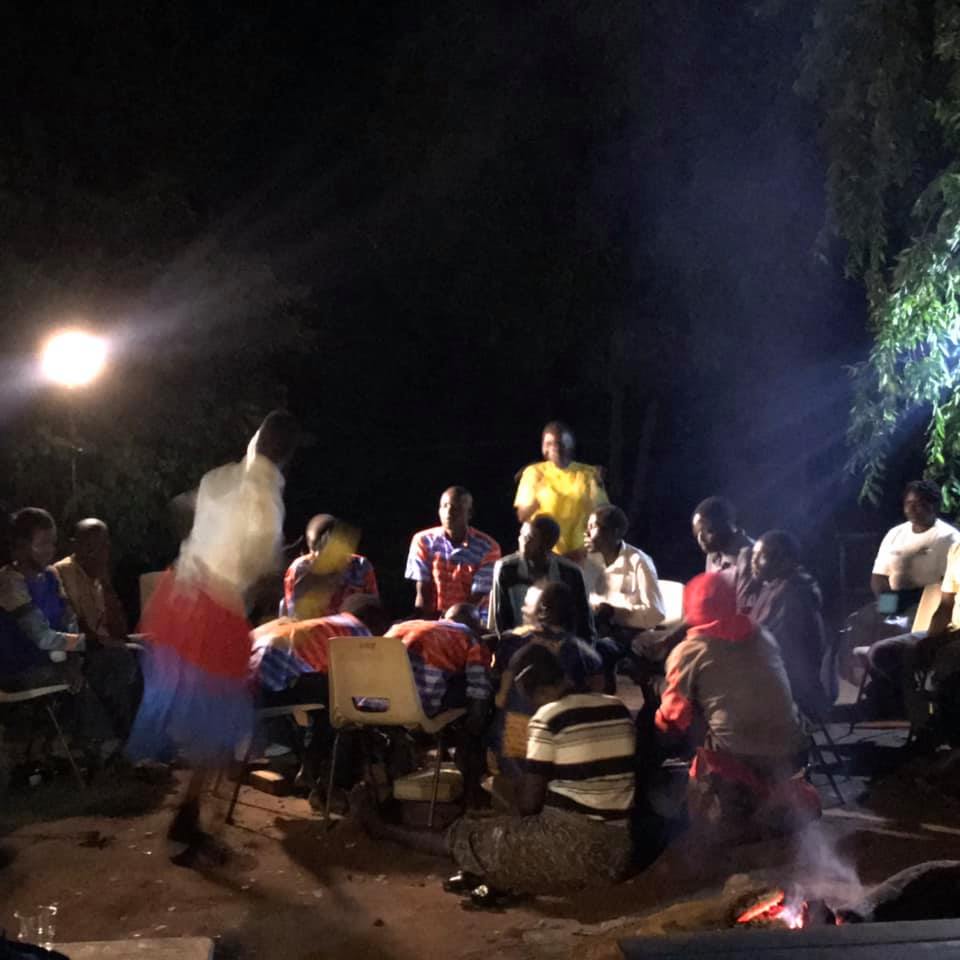Inter - cambio en Uganda
El 19 de mayo de este año inició para mí una experiencia profundamente transformadora. Tengo el honor de formar parte de la red Transformative Memory Partnership, un grupo de investigación a nivel internacional e interdisciplinar, que busca articular académicos, artistas y trabajadores de la memoria de todo el mundo para co-crear e intercambiar conocimientos y prácticas sobre las formas en que se emplea la memoria, con fundamento sólido en las comunidades victimizadas por diferentes conflictos, que al margen de la construcción oficialista de la verdad, que muchas veces obedece a intereses políticos, crean sus propios proyectos significativos de memoria. En este sentido, el objetivo principal de este colectivo es examinar qué hace que el trabajo de la memoria sea transformador y de real impacto en las comunidades.
This year, on May 19th, a profoundly transformative experience started for me. I am honored to be part of the Transformative Memory Partnership. An international and interdisciplinary research group that seeks to build bridges between scholars, artists, and people dedicated to the memory preservation from all over the world to co-create and exchange knowledge and know-how about how to implement the memory with the victimized communities from different conflicts as the cornerstone, since they, relegated from the established truth, that many times respond to political interests, create their own meaningful memory projects. In that sense, the principal objective of the group is to investigate what makes working with their memories something that can transform and have a real impact on different communities.
Asistí al primer encuentro en Canadá, en febrero del 2017, gracias a la invitación de la doctora Pilar Riaño-Alcalá y la doctora Erin Baines quienes lideran este proyecto. Casi dos años después el llamado fue en Uganda, país del África Oriental, ubicado, al igual que Colombia, sobre la línea del Ecuador, a 11.825 km de distancia de nuestro país, donde esperamos reunirnos nuevamente el próximo año.
Me fui a intercambiar historias. Mis pasos dados con Río Abajo, Sudarios y Relicarios me permitieron ocupar este lugar privilegiado para servir de puente y llevar testimonios de mi país, los que conozco gracias a mi qué hacer, y escuchar, también, nuevas historias para traerlas de vuelta. Dolores, al fin y al cabo, muy similares a los nuestros, porque aunque nos separa un océano, tenemos en común el sentido de la pérdida.
In February 2017 I attended to the first encounter in Canada, thanks to the invitation of the Dr. Pilar Riaño-Alcalá and Dr. Erín Bines, who lead this project. Almost 2 years later the meet up was in Uganda, a country in East Africa that is located, like Colombia, over the equatorial line, at 11.825 KM of distance from our country and where we hope to gather next year.
I went there to exchange stories. My experience with Río Abajo, Sudarios y Relicarios, allowed me to occupy an exceptional position to work as a bridge to tell some of my country´s testimonies, which I know thanks to my work; and also listen to new stories to bring back. I get to know pains very similar to ours because even though we are separated by an ocean, we have in common the feeling of loss.
Intercambié verdades, me atrevo a afirmar, las más puras: las que yacen en los relatos de los dolientes de la guerra, los de aquí y los de allá, que vienen siendo, en últimas, siempre los de aquí, los del mismo lado, el de los sobrevivientes, el de los seres humanos que habitamos, “aquí” y ahora, esta tierra sagrada. Viajé con mensajes de ida y vuelta, para que aquellos, lejanos por el mar, estén más cerca no solo por el dolor que ya los hermana, sino gracias a palabras de aliento, compartidas entre quienes conocen de primera mano la dificultad que supone buscar nuevas fuerzas en medio del duelo, puesto que en la dimensión del propio dolor es que se puede dimensionar el dolor del otro.
I exchanged truths, I dare to say, of the purest kind, those that lay in the story of the mourners of the war; those from here and there; those who are, in the end, always from the same side, the side of the survivors, human beings that inhabit the ‘here’ and now of this sacred land.
I traveled with messages there and back again so those far away due to an ocean could get closer, not only because of the pain that made them brothers and sisters already; but also because of the words of encouragement shared between those that know first-hand the hardships of looking for new strengths in the middle of grieving because with our own pain, we can understand the pain of others.
Intercambié y cambié yo en el proceso. Y vestida de retazos de colores cosidos por manos de mujeres sobrevivientes, allí, rodeada de tanta danza y de tanta vida después de la muerte, la inquietud que le llevaba al África por lo sagrado, tan presente a lo largo de mi obra, latía a flor de piel. Uganda me permitió percibirlo como una relación esencial de respeto del ser humano consigo mismo: la consciencia de que el otro es sagrado es posible por el entendimiento de que uno mismo es sagrado.
I exchange and change myself in the process. Dress with the colored pieces of cloth, tailored by the hands of the survivor women, there, surrounded by many expressions of dance and life after death. The interest in what is sacred that brought me to Africa, so present within my work, was deeply expressed. Uganda allowed me to interpret it as a fundamental relation of human beings with themselves: the awareness that the other is sacred comes from the understanding of one´s own sacredness.
La vida más allá de la muerte es la vida de los sobrevivientes, y no es propiamente un paraíso. Es la realidad de quienes ya pasaron por el infierno de la guerra y están, de una u otra manera, instalados en la eternidad del duelo. Es por ello que me siento honrada de continuar trabajando en El Oratorio, que sigue elevándose poco a poco desde el umbral, cargado con nuevas fuerzas gracias a las nuevas amistades forjadas, surgiendo entre la sombra de los dolores ocultos e impronunciables y de lo que es necesario exponer, de lo que no se puede callar, de lo que es necesario pronunciar, levantar en oración con palabras sagradas o ser ritualizado de alguna manera, de acuerdo a la fe, a las necesidades expresivas o a las más hondas peticiones del espíritu de cada persona, al margen de agendas y de intereses particulares, provenientes desde el propio corazón de los dolientes, de los resistentes, de los resilientes.
The lives of the survivors are lives beyond death. Is not like it´s a paradise. It´s the reality of those who already went through the hell that is war and are, one way or another, settled in the eternity of mourning.
That is why I feel honored to continue working on El Oratorio. Little by little still arises from the edge with new strengths thanks to the newly formed friendships. Coming up between the shadows of hidden and unspeakable pains and from what is necessary to show, of what can´t be silent, of what is imperative to speak up, raising a pray with holy words or somehow make a ritual out of it, according to the faith and the necessities or deepest plea of each individual spirit far from agendas and particular interests, coming only from the own heart of the mourners, of those who resist, of the resilient.
Este intercambio fue tal como lo señaló Fátima, mujer acholi, quien afirmaba que hay personas, como las víctimas, que son como los retazos que sobran de un vestido y la memoria consiste en unir esos retazos para construir un vestido nuevo. Coser la memoria significa hilvanar, remendar los retazos que deja la guerra con el hilo de nuestra palabra, con las acciones de nuestras manos, con la empatía y la compasión necesaria para dar la puntada que nos une.
This exchange was, like Fátima; an Acholi woman, point out when she said that there are people, like the victims, that are similar to those pieces of clothes left from when you are making a dress. What the memory does is to put those pieces together to make another dress. Weaving the memory means to baste and mend the pieces that the war left with the thread of our words, with the actions we do with our hands and the empathy and compassion needed to give the stitch that joins us together.
Me fui dispuesta a poner lo mejor de mí, a permitir que Uganda quedara grabada en todos mis sentidos. Haber visitado Bucoro, un sitio de masacre donde hubo tanto horror, conmueve sobrecogedoramente y y esa sensación se queda inevitablemente en la piel. Yo creo que uno se trae en los pies la memoria del recorrido, y a su vez, uno deja una memoria corporal en los otros. Los viajes siempre nos dejan el conocimiento de la existencia de muchos seres que antes no extrañaríamos, y a su vez, nos prolongamos en la memoria del otro, es decir, en otros universos. Simplemente gracias por hacerme parte de su memoria y por hacer parte de la mía. Gracias a la vida por el regalo de permitirme conocer la poderosa y extraordinaria belleza de la naturaleza de este territorio, y el particular y deslumbrante color rojo de su tierra.
I wanted to give the best of me when I went; I wanted to allow Uganda to stay engraved in all my senses. Visiting Bucoro, a massacre place where there was so much horror, it´s overwhelming, and that feeling stays inevitably in your skin.
I believe that you take with you the memory of your path in your feet and at the same time, you give others a corporal memory. Journeys always let us the knowledge of the existence of many beings that we were not missing before and at the same time, we get into the memories of others, which is the same as saying in other universes.
I just want to thank you all for letting me be part of your memories and for being part of mine, and I want to thank life itself for the gift of allowing me to meet all that extraordinary and powerful natural beauty of this territory and the natural and dazzling red color of the lands.
APWOYO MATEK
Fotografía por Michael Ruffolo
Gracias por este inter-cambio a / Thanks for this exchange to:
Dr. Pilar Riaño-Alcalá
Dr. Erin Baines
Michael Ruffolo
Peter Morin
Alit Ambara
Gung Ayu
Jeff Korondo
David MacDonald
Joyce Ayubo
Docus Atyeno
Rwot Collins Atiko II
ker Kal Kwaro
Rwot David Onen Acana
Justice and Reconciliation Project
Para más información sobre Transformative Memory,
https://blogs.ubc.ca/transformativememory/
Twitter: @TMemoryPartners


















